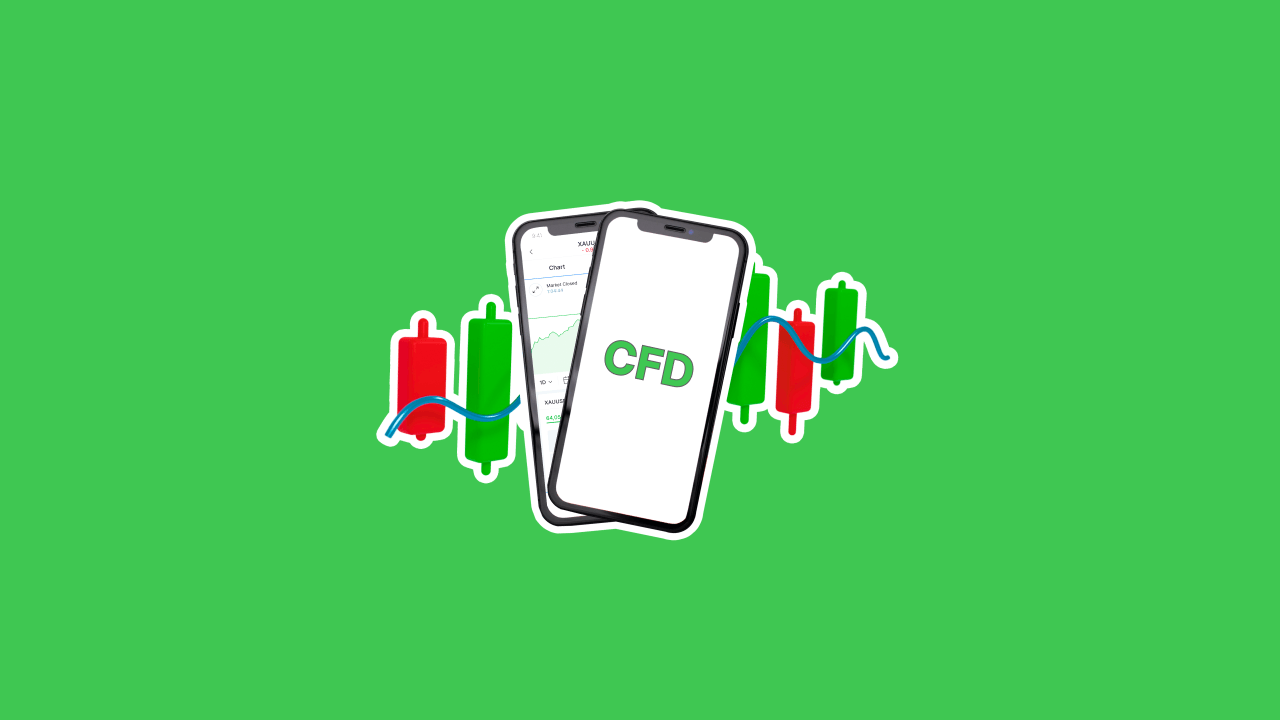CFD (Contract for Difference) trading is a popular way to invest in financial markets, offering flexibility and the ability to enter trades without owning the underlying asset. But how can one effectively trade CFDs across various financial assets such as stocks, currency pairs, indices, commodities, and more? Let's dive into this topic and take a closer look at CFDs.
What are CFDs?
CFDs, or Contracts for Difference, are agreements between a buyer and a seller that require them to exchange the difference in asset price between its current value and the price at the contract time. This means that when you enter a CFD trade, you are essentially speculating on the price movements of an underlying asset rather than buying the asset itself. This allows you to take advantage of both rising and falling markets and use leverage to increase your potential returns.
As NAGA, we provide our clients with a diverse range of investment options to choose from. We understand that different traders have different preferences and goals, and therefore we offer a variety of CFD assets to trade in, such as:
- Stocks: Represent ownership shares in publicly traded companies, including well-known names like Apple, Amazon, and Google.
- Currency Pairs (Forex): You can trade on the relative value of different currencies, such as the Euro and the US Dollar.
- Cryptocurrencies: Digital assets that use cryptography to secure transactions and control the creation of new units, like Bitcoin and Ethereum.
- Indices: Measure the performance of a particular financial market, such as the S&P 500, NASDAQ, and DOW Jones.
- Commodities: Represent the essential goods in commerce, like Gold, Crude Oil, etc.
- Bonds: Debt securities issued by governments, municipalities, or corporations, which are a great option to diversify your portfolio and gain from interest over time.
With NAGA, clients can choose assets that align with their investment objectives, risk tolerance, and market knowledge. And with our low commission rate, we make it possible to trade with minimal costs.
Advantages and disadvantages of CFDs
CFD trading offers several advantages that make it an attractive option for investors. Some of the main advantages include:
- Flexibility: CFD trading allows you to enter trades without owning the underlying asset, which means taking advantage of price movements in rising and falling markets.
- Leverage: CFD trading allows you to use leverage, which means you can enter trades with a smaller amount of capital than would be required to buy the underlying asset outright. This can increase your potential returns, but it also increases your risk.
- Wide range of markets: CFD trading is available on a wide range of markets, including stocks, shares, cryptocurrencies, forex, commodities, indices, etc. This means that you have many choices when selecting assets to trade.
Despite the advantages, CFD trading has some disadvantages you should be aware of. Some of the main disadvantages include the significant risk of capital loss. CFD trading is a high-risk investment; you can lose more than your initial investment if the market moves against you. In addition, CFD trading can be complex, and you need a good understanding of the markets and the underlying assets to succeed.
CFD trading example
To illustrate how CFD trading works, let's consider an example of a trader who wants to speculate on the price of gold. The trader believes that the price of gold will rise shortly, so he enters a "Buy" or "Long" position by buying a CFD on gold.
The trader pays a small margin (a percentage of the value of the gold) to his CFD broker to open the trade and sets stop-loss and take-profit orders to manage his risk. The price of gold rises, and the trader decides to close his position, taking his profit.
In this example, the trader has been able to profit from the rising price of gold without actually buying the physical gold. He has also used leverage to increase potential returns while managing risk through stop-loss and take-profit orders.
FX and CFD trading
CFD trading is often used with FX (foreign exchange) trading. FX trading involves buying and selling currencies in the hope of making a profit from the changing exchange rates. CFD trading can speculate on the price movements of currency pairs, similar to how it is used to speculate on the price movements of other assets.
When trading FX and CFDs, it is important to understand the risks. FX and CFD trading can be highly speculative and volatile, and you should only trade with money you can afford to lose.
Difference between CFDs and Futures
CFDs and futures are financial derivatives with some key differences.
A futures contract obligates the buyer to purchase an underlying asset at a specified price on a specified date in the future. Futures are typically used for hedging and speculation and are traded on regulated exchanges.
On the other hand, CFDs are contracts that allow the buyer and seller to speculate on the price movements of an underlying asset without actually owning the asset. CFDs are typically traded over-the-counter (OTC) and are not regulated like futures.
One of the main differences between CFDs and futures is the level of regulation. Futures are regulated by government bodies, such as the Commodity Futures Trading Commission (CFTC) in the United States, while CFDs are not. This means there is more oversight and protection for future traders and more restrictions on trading.
What to look for in CFD broker
When choosing a CFD broker, there are a few key factors that you should consider. Some of the most important factors include:
- Regulation: Look for a broker regulated by a reputable government body, such as the CFTC in the United States, BaFin in Germany or CySEC in Cyprus.
- Fees: Compare the fees of different brokers to find the one that offers the best value for money.
- Leverage: Consider the level of leverage offered by different brokers and choose one that meets your risk tolerance.
- Platform and tools: Look for a broker that offers a user-friendly platform and a range of tools to help you trade effectively.
- Customer service: Check the quality of customer service offered by different brokers and choose one that is responsive and helpful.
At NAGA, we are proud to say that we are highly reputable among traders and meet the highest criteria for selection. We provide users with a flexible choice of instruments for CFD trading, including currencies, stocks, indices, and metals. Furthermore, we offer low commission rates on all trades, making us a cost-effective option for traders.
Our reputation for reliability and flexibility in trading options makes us an attractive choice for experienced and novice traders.
CFD automated trading
Automatic trading, also known as algorithmic trading, has recently gained popularity, allowing traders to automate their trades based on their preferred strategies and parameters. However, at NAGA, we take automated trading to the next level by allowing autocopy-specific traders.
Our platform features a comprehensive leaderboard of Lead Traders, where you can filter through the list and find traders that align with your specific needs and goals. You can evaluate traders based on profits, capital management, number of followers, and success rate. This allows you to make informed decisions and select traders with a proven success track record.
Once you have chosen a trader to copy, you can replicate their positions entirely or by a fixed amount or percentage. This feature, known as copy trading, is an effective way for any trader to gain insight into other traders' trading strategies and techniques.
It's important to note that, as with all trading activity, an inherent risk is involved. However, you can mitigate some of this risk by researching and selecting traders based on their performance and experience. To learn more about how to copy trading works on NAGA and how you can get started, please visit our website for more information.
Conclusion
In conclusion, CFD trading is a popular and flexible way to invest in financial markets. It offers the ability to enter trades without owning the underlying asset and to take advantage of both rising and falling markets. However, it is also a high-risk investment, and you should only trade with money you can afford to lose.



